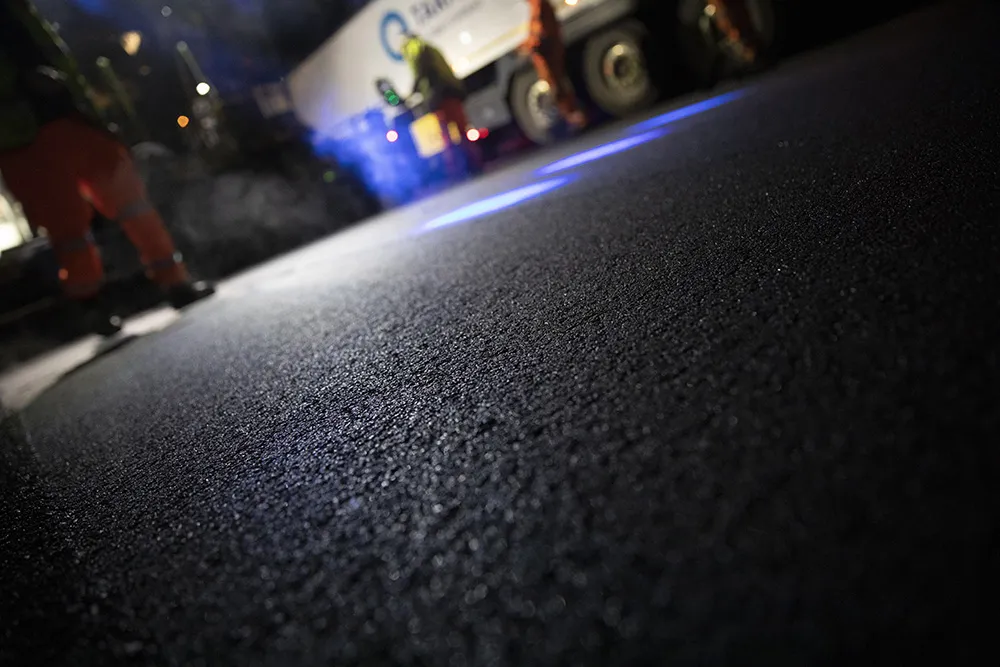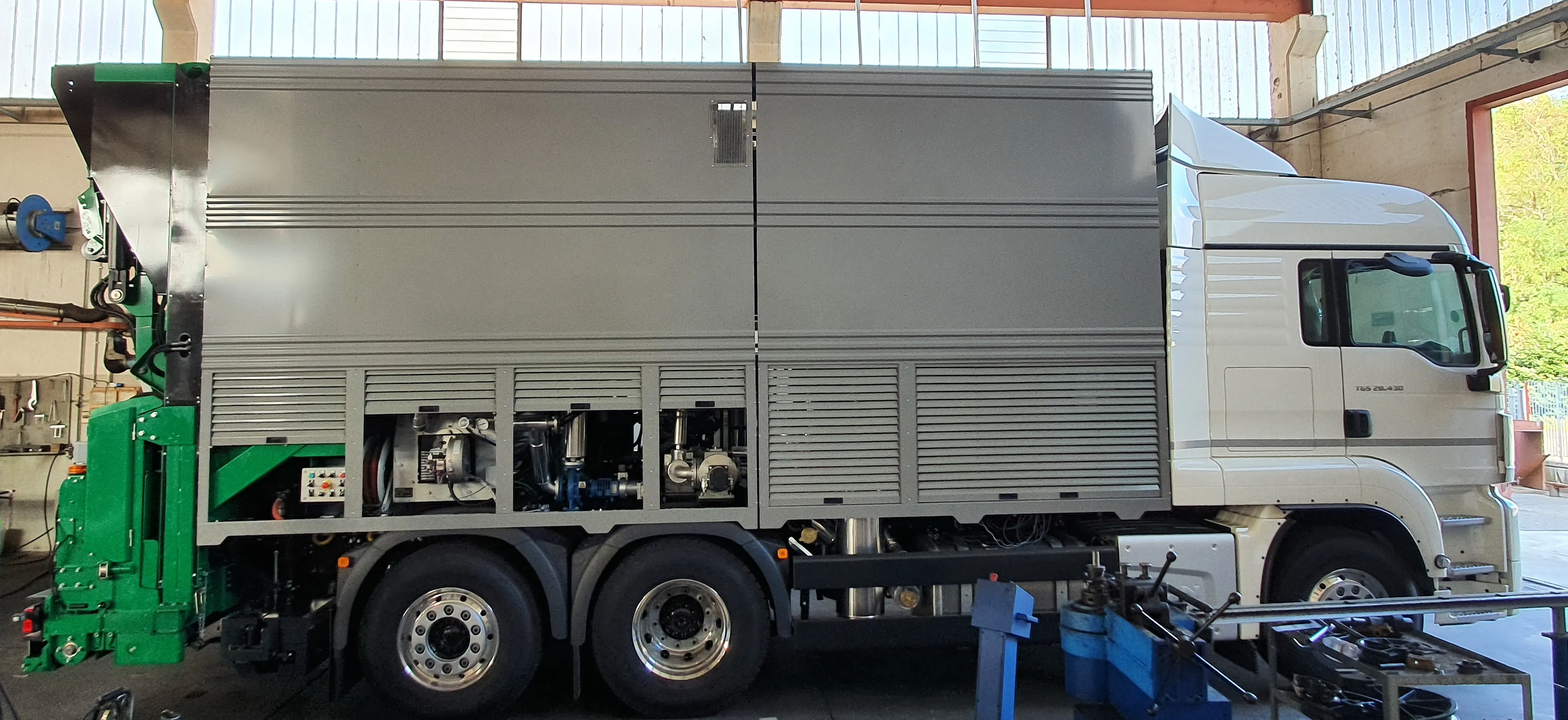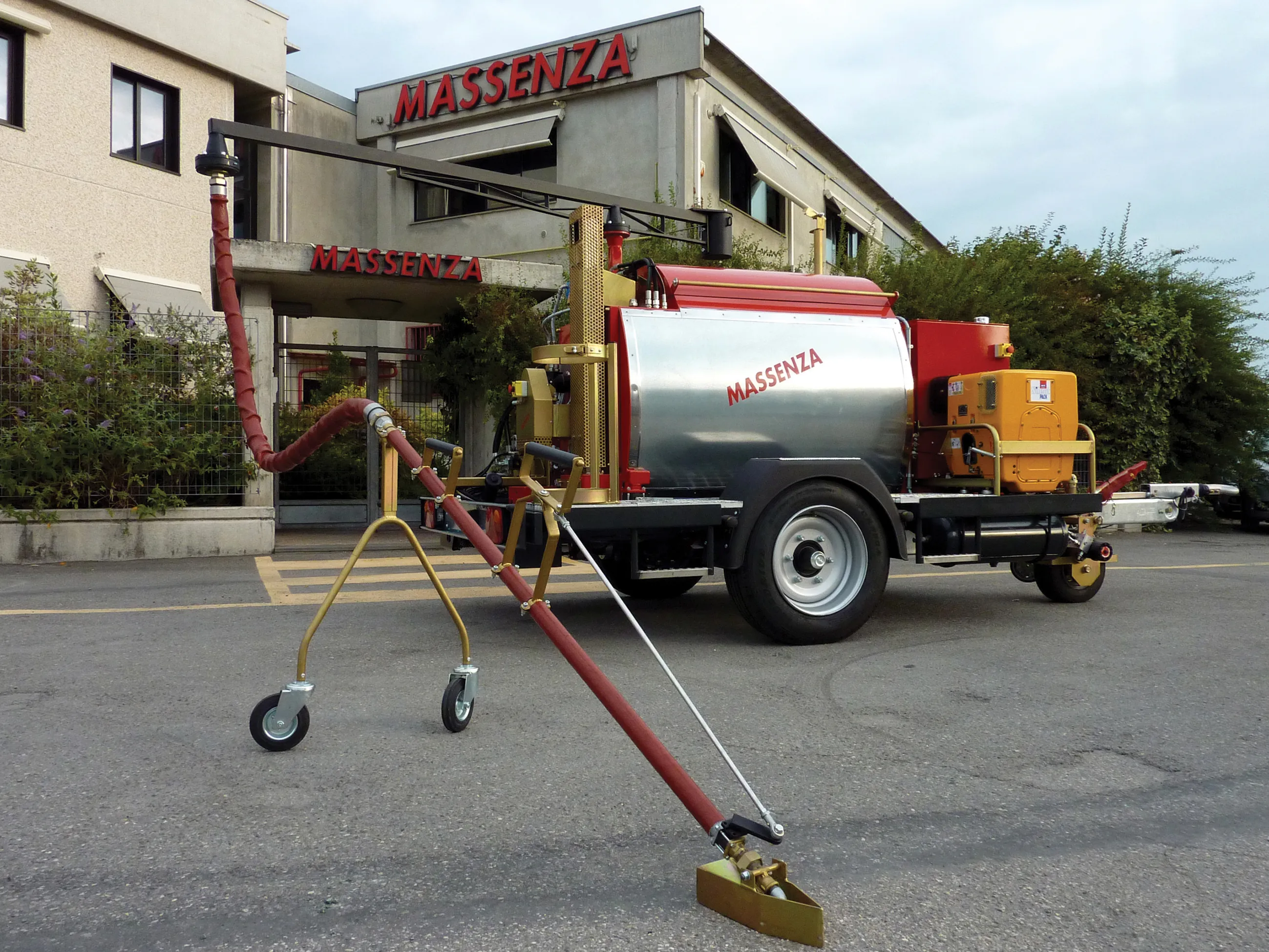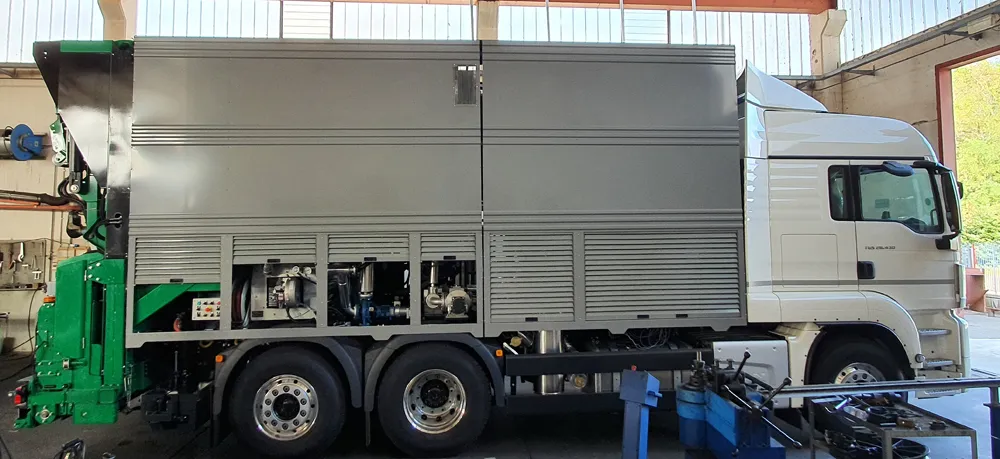
The lean concrete base of an 8km section on both carriageways of the A11 near Thetford was identified as in need of repair. Tarmac was tasked with finding a long-lasting surface that would cut life cycle maintenance costs.
Working in partnership with National Highways and project consultants Atkins and following a whole-life cost analysis, Tarmac suggested the use of its fully recyclable ULTILAYER SAMI asphalt, a high-performance stress absorbing membrane interlayer. The team laid 80,000tonnes of material, including 7,000tonnes of ULTILAYER SAMI, the most Tarmac has ever supplied to a single project. In addition to being fully recyclable, this special asphalt is expected to increase the life of the pavement, resulting in lower maintenance requirements.
Phil Greenin, contracting framework delivery manager at Tarmac, said: “ULTILAYER SAMI is a proven technology that has been developed to tackle deteriorating concrete roads. Its previous applications on the strategic network, including on the M25, have demonstrated that its greater whole-life performance can extend pavement life, deliver longer resurfacing intervals and lower maintenance requirements.
Conventional asphalt grades used to overlay concrete often suffer from reflective cracking caused by thermal expansion in the underlying concrete and the effects of traffic loading. This leads to water ingress and failure that requires remedial work.
Designed to be laid onto concrete, the material is a finely-graded asphalt containing a heavily polymer modified binder (PMB), which provides a durable buffer to accommodate movement and prevent cracks appearing in the asphalt layers above. This was overlaid with a polymer modified binder course and surface course material to further increase the crack resistance of the carriageway.
In addition to the new surface’s improved sustainability credentials, the Tarmac project team is ensuring that 100% of the old surface material will be recycled and is implementing a ‘carbon calculator’ to accurately identify where other emissions savings have been achieved.








